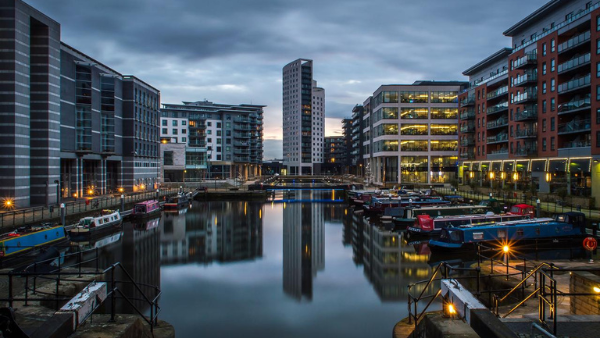There is no concept more politically important today than creativity. I’ll give four reasons why but first a definition.
‘Creative’ has narrow, broader and even broader connotations in English. It’s the last of these we should be most interested in.
The narrow meaning immediately leads one to think of activities directly associated with the arts.
The broader sense encompasses those activities associated with what Richard Florida calls the ‘creative class’. This includes the arts but also involves activities such as architecture, design, advertising, video game development etc.
Finally there is the broadest meaning which implies an act that is unique to an individual’s own capacities or vision. This includes actions which can range very widely from developing your own food recipes, setting up a charity to address a local problem, establishing a website to network a group with a shared interest, writing your own music, building your own house, writing a blog post and so on and so on. But the defining characteristics are the unique, pro-active and self-determined nature of the activity.
So how can such a broad notion be so important? Here are those four reasons.
1. Creativity is good for us: it’s the best use of freedom
I’m with the great economist Deirdre McCloskey who argues that people living in the advanced capitalist economies are the freest and happiest populations who ever lived. But that’s not to say we couldn’t be freer and happier.
Being as free as we are has got to be about more than the consumption and acquistion which so dominated western economies in the 1990s and 2000s. A deeper happiness (the well-being or fulfillment we hear a lot about these days) has got to come from using our freedom to be creators as well as consumers.
No less a thinker than the Grandpa of capitalist democracy, J.S. Mill felt the same way. It was his fervent hope that individuals would use their political and economic freedoms to combine their “individual vigour and manifold diversity” to deliver “originality.”
Mill understood that taking the great historical gift of freedom in order to remain passive, ineffectual and conventional was horribly wasteful. To achieve real fulfillment through free choice, we need to understand what it is that we as a unique individual can do to make the world a better and more interesting place. Fortunately, we now have the resources to be creative in ways we could not have imagined even a decade ago; which brings me on to my next point.
2. Creativity is more economically important then ever: modern capitalism thrives on it
Creativity has always been the driving force of capitalism but for most of its history this creativity has been confined to a rather select group who had the access to the knowledge and resources to develop and deliver a product. The great mass of consumers were simply passive recipients who largely expressed their feelings about a product through price.
As I described in a paper I wrote last year, this is undergoing radical change. We are in the era of ‘self-generated value’ where consumers increasingly control the products and services they purchase to the extent that they actually become producers or co-producers themselves – a shift largely driven by the rise of the internet. I give a lot of examples in the paper and won’t reiterate them here but suffice it to say that the most successful internet firms – Google, YouTube, Twitter, Facebook – are those that provide platforms upon which tens of millions of people can share their own creations.
One massive consequence of this is that economic success will be driven as much by the creativity of all as the creativity of an elite. Competitive companies will be those that offer products intensively shaped by the unique ideas and perspectives of every single one of their customers. Companies and wider economies that fail to grasp this new reality will ultimately be squeezed out of markets by those that do.
3. Creativity is necessary: it is the only solution to long-term austerity
Short of radically reducing life expectancy, there’s not much we can do to deal with austerity other than release a wave of innovation in our most fundamental public services. You can protest all you want about stretched social care budgets and winter health crises but with a rapidly ageing population increasing demand on services while paying in less tax there’s not a great deal that protest will achieve.
Far more beneficial, I think, to look to the highly creative innovators in public service delivery who are finding new, productive ways to deliver impact by breaking out of established institutions and mobilising the vast resource of volunteer support and service user creativity which the public sector does barely nothing to employ imaginatively. We need far more Charlie Alcocks, Alex Foxs, Lucy Macnabs and Ben Paynes if we are to really generate the levels of creativity needed to meet the challenges of austerity.
4. Creativity is under threat: it needs protecting
It’s such a warm, cuddly concept it seems odd that anyone can be against creativity but the truth is that unleashing the power of the masses to act on their own ideas is deeply troubling to all sorts of people.
Take the last point about public services. There is a very strong culture in the public sector that is deeply suspicious of the sort of freelance, disruptive creativity that is required to transform delivery. Part of this results from an understandable fear of change which may well impact on jobs and working conditions but it is also the result of politicised trade unions that fail to engage constructively with any radical innovation as well as a management that is too imbued with the interests of their own institution rather than longer term impact.
Not that the Government always does its best to encourage creativity and challenge inertia in a meaningful fashion. Look, for example, at what is currently happening in English schools. A strengthening obsession with inspection, testing and a tightly constrained curriculum focused on traditional academic subjects is squeezing out the opportunity to nurture the creativity of students or allow teachers to innovate and experiment.
Even the part of our world where one would think mass creativity is most free to operate – the private sector – is actually still dominated by oligopolies unable or unwilling to adapt to a world where good ideas can come from anywhere. Some of our most important sectors – energy, banking, transport – are controlled by a handful of hidebound companies (heavily backed by the state) structurally unable to do things differently.
As I’ve mentioned before it is a striking statistic that half of the UK’s private sector turnover is generated by just 6,500 companies while the other half is generated by 4.8 million. Indeed some of the most radical, creative things happening in the private sector made possible by the internet face constant challenge from vested interests whether it’s alternative currencies being banned in China, Airbnb facing similar treatment in New York or supposedly beneficial regulation making life difficult for smaller, innovative banks.
Time to stand up for creativity
This notion that mass creativity is the driving force of our new(ish) century and an ideal that needs strenuous defence and promotion does not come out of nowhere. For the last few months staff, Fellows and trustees at the RSA have been thinking hard about what the RSA should stand for and what it should focus on in coming years. We still have a lot of wider deliberation to do but we are sure that unleashing the power to create will be at its heart.
It was not a hard idea to come by. A deep faith in the creativity of all has always been central to the RSA with its long history of giving people the tools and incentives to innovate and create no matter what their background whether that be through offering financial support for innovations, establishing the first vocational qualifications or stimulating radical ideas from young designers.
Creativity is in the DNA of the RSA and we don’t think there has been a better time to stand up for what we believe in. The truth is the 21st century could be an unprecedented explosion of creative endeavour or, should we give in to the pressures of inertia and vested interests, it could be the century when we never fully escape austerity and the economic mistakes of the past.
So expect us all to be taking to the barricades yelling “Liberté! Fraternité! Egalité! Créativité!” from now on. Feel free to join us.
You can follow me on Twitter here.
Related articles
-
Culture should be at the core of West Yorkshire's economic plans
Andy Haldane Tracy Brabin
Andy Haldane and Tracy Brabin, Mayor of West Yorkshire, discuss how investing in culture and creative industries can make a success of local growth and levelling up.
-
The impact of arts-based education
Mark Londesborough
Mark Londesborough on the findings from the final Learning About Culture report and the implications for arts-based learning.
-
How young people are shaping social change despite Covid-19 challenges
Aidan Daly
Despite the pandemic, school pupils are demonstrating creative confidence and a commitment to making their communities a better place.



Join the discussion
Comments
Please login to post a comment or reply
Don't have an account? Click here to register.
Adam - Thanks for your informative post on Creativity as an RSA value to champion in the 21st century.
In considering your post I realise it important to define in what context you consider creativity.
If we look within the context of human development then creativity is an expression of authenticity and of consciousness. Creativity is part of our DNA and an evolving expression of life itself. In fact we are a manifestation of creativity. In this regard creativity has always been a driving force, always seeking out new possibilities as consciousness expands.
As you've mentioned capitalism and innovation, then within a modernist, economic context based on Cartesian principles, creativity is a means within that structure to create new 'products' to generate more growth and perhaps increased 'financial freedom'. As a means towards a practical ends, then that use of creativity seems to nurture 'progress', but is quite limited in scope.
When I consider the Arab spring and the Occupy movement of late, then it seems that creativity is behind the spark in consciousness that seeks to throw off shackles that limit it's expression. The use of twitter, youtube and FBook were creative tools to express dissent and helped to ignite changes in mass consciousness. The gatherings themselves were not just demonstrations against - they were gatherings of people creating something new together. This might be akin to the beginnings of the RSA in coffee houses in London.
The context that I find creativity particularly interesting then is looking beyond the individual to what can happen between individuals; as a group process to create something new. When individuals voluntarily put aside their differences and focus together on allowing something new to emerge between them, that creativity that springs forth helps to formulate something new in consciousness - akin to a biological process of evolving to a cooperative organism with greater complexity.
Is it too mundane to note that there's no mention in anything I've read so far to either the Intellectual Property Office or any of the laws that seek to protect expressions of creativity ?
I agree with all of this and at fixers we can demonstrate the powerfulness of creativity and its impact on individuals, communities and policy makers www.fixers.org,uk. Lets speak.
Hi Adam
Taking the perspective in which you've articulated creativity as a political concept, I'd argue that there are three more political concepts that take precedence before creativity in the modern environment. They are agility, flexibility and resilience! With these in abundance, or even in some small measure, then the rise of creativity may indeed be heralded.
Thanks for a very thoughtful post.
Interesting piece! In my response-blog (here: http://www.rsablogs.org.uk/201... I suggest that the perception of owning this power to create – the power to be an actor in your life and not merely a participant – is not as widely distributed as the ability to create is. The people around us - our social connections - might be the missing link in going from participants to actors.
People often need a push/spark/catalyst to see themselves as creators because the act of doing, of interacting, of creating implies some level of believing that you are worth it.
http://www.rsablogs.org.uk/201...